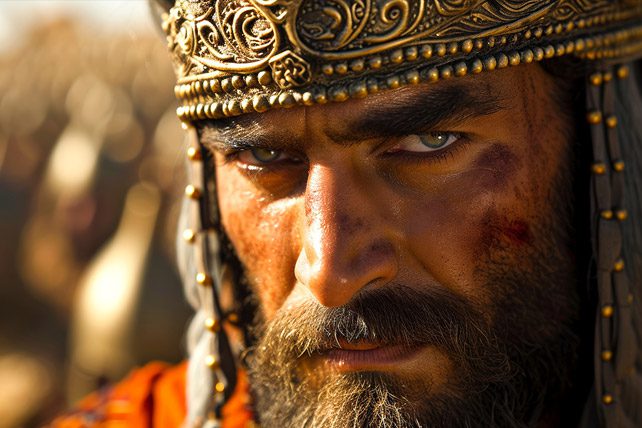The Bible, a treasure trove of historical narratives and spiritual lessons, introduces us to numerous influential figures who played pivotal roles in shaping religious and historical contexts. Among these figures is Darius, a name that echoes through the corridors of ancient history, resonating with tales of power, faith, and divine intervention. Darius emerges in the Biblical narrative with a presence that intertwines with the lives of prophets and the unfolding of God’s will. Who is Darius in the Bible, his identity, actions, and spiritual significance?
Darius in the Bible
Darius in the Bible is a figure mentioned in the book of Ezra and alluded to in other parts of the Bible, including the book of Zechariah. Historically identified as Darius I or Darius the Great, he was the son of Hystaspes and a paramount ruler of the Medo-Persian Empire. His reign marked a period of significant administrative reforms, architectural achievements, and the expansion of the Persian Empire to its zenith. The Biblical narrative, however, focuses more on his interactions with Jewish leaders and prophets during the rebuilding of the Temple in Jerusalem and the dramatic events involving the prophet Daniel.
Darius and the Prophet Daniel
One of the most captivating stories involving King Darius is his relationship with Daniel, a Jewish prophet who found favor in the king’s court but was later thrown into a lion’s den for defying a decree that banned worship of any deity other than the king. This story, found in the book of Daniel, showcases Darius not as a villain, but as a ruler trapped by his own laws and later, as one profoundly influenced by Daniel’s unwavering faith. This incident leads to Darius decreeing that all his subjects must reverence the God of Daniel, highlighting a moment of spiritual revelation and transformation for the king.
King Darius in the Book of Ezra and Zechariah
In the book of Ezra, Darius’s reign provides a critical backdrop for the second phase of the Jewish return from Babylonian exile and the rebuilding of the Temple in Jerusalem. Darius is portrayed as a supportive figure who not only permits the rebuilding efforts but also finances them, ensuring the restoration of the temple and the reestablishment of Jewish religious practices. This act of support is crucial in the Bible’s narrative of the Jews’ return to their homeland and the reconstitution of their religious and social life.
In Zechariah, Darius’s reign is referenced to date the prophet’s visions and messages, further embedding him within the Biblical historical context. This association underscores the interconnectedness of secular and divine narratives in the Biblical text, highlighting the role of kings and empires in the fulfillment of prophetic visions and divine decrees.
Was King Darius a Good King?
The Biblical depiction of Darius offers a nuanced view of his kingship. While secular histories laud him for his administrative acumen and military conquests, the Bible presents him as a ruler capable of recognizing divine power and authority. His actions, especially in relation to the Jewish exiles and the prophet Daniel, cast him in a relatively positive light, portraying him as a king who, despite his pagan background, could acknowledge the sovereignty of the God of Israel.

